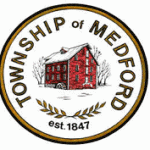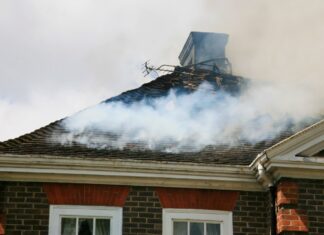
After months of listening to residents and community groups debate the merits of deer fencing, Medford Township Council hopes it has found a compromise to settle the issue.
Council’s subcommittee on deer fencing presented a draft ordinance at last week’s council meeting. Deputy Mayor Jeff Beenstock said the subcommittee tried to find a middle ground between the deer netting supporters and opponents.
“We’re trying to set a balance here,” Beenstock said.
Under the draft ordinance, deer fencing would be permitted in wooded areas. It can be up to eight feet high in back yards and up to six feet high in front yards.
For front yard deer fencing, there would be additional requirements. The deer fencing has to be at least 10 feet from any adjacent lot. It must also be at least one foot away from the township’s right of way or 15 feet from the edge of the pavement.
Front yard deer fencing will also have to be hidden from view. Residents must place vegetation of at least five feet in height to obscure the fence.
“It’ll provide limited viability in a sheltered or wooded environment,” township planner Scott Taylor said.
In detailing the ordinance, Beenstock also said driveways must be left open.
“Gates will not be permitted,” he said. “There cannot be netting across the driveway.”
The draft ordinance also states netting should be black or dark brown. It must be attached to poles and cannot be attached to trees.
The subcommittee consisted of Beenstock, Taylor, Councilman Chris Buoni, neighborhood services advisory board chair Tom Corbi and planning board chair Jack Hartwig. The group spent the fall and early winter meeting with homeowners associations and community groups to try to figure out the best solution.
Beenstock acknowledged deer fencing was a very polarizing issue, with groups of residents showing support both for and against it.
“It’s one we wanted to address carefully and thoughtfully,” he said.
Buoni felt the ordinance addresses the concerns of both sides.
“The goal was to let people protect their property, but not affect other properties,” he said.
The issue of deer fencing was originally brought before council in May 2014 after residents complained about the lack of clear regulations for it. The original question was whether deer fencing would be defined and regulated as any other fence in the township. The topic was brought to the township’s attention in the past, but no action had been taken.
The draft ordinance received mixed reviews, with some residents feeling some progress was made. Resident Paul Davis had expressed concerns about the deer fencing at multiple council meetings, but said he felt things were moving in the right direction.
Bruce Haegley, a resident and zoning board member, was happy to hear residents in open areas would not be permitted to have the fencing.
“You did a great job burying this in a wooded area,” he said.
A big complaint among opponents was the fence issue wasn’t correcting the problem of deer overpopulation in the township. Ken Dybalsky felt council was failing to address the deer problem.
“I don’t think a fence will stop any deer from eating vegetation,” he said.
Bob Elmer agreed, saying the deer problem can be solved without permitting deer fences.
“That’s the heart of the issue, if we just take care of the deer,” he said.
Elmer was also concerned about the fencing being visible looking down a person’s driveway from the street. When council members said the five-foot vegetation was meant to hide any view of the fence from the street, Elmer disagreed.
“I think it’s going to be very obvious,” he said.
Even if the draft ordinance is passed, Councilman Brad Denn noted it would not override a homeowners association’s regulations. Homes that are deed restricted would still have to abide to their homeowners association’s rules.
Taylor also said residents who have fencing not in conformance with the draft ordinance can still apply for a variance with the zoning board, as in the past.
Council said the draft ordinance and additional information will be made available at www.medfordtownship.com prior to the ordinance’s first reading, scheduled for March 3.










